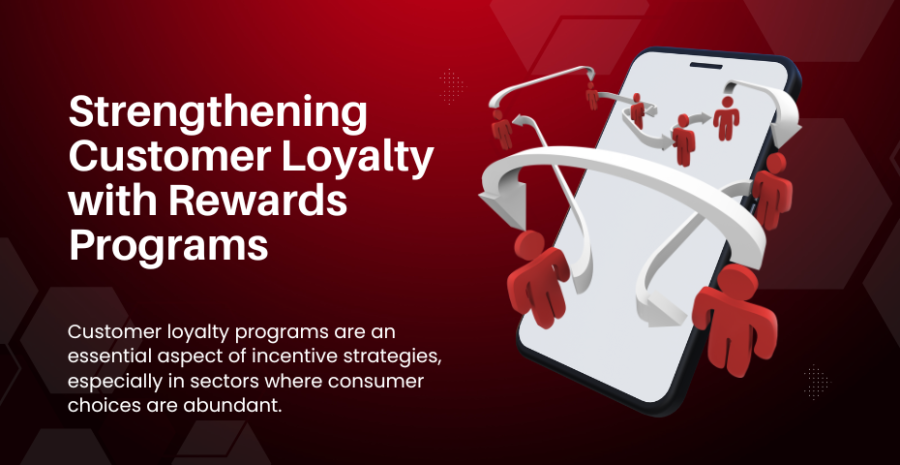Why Incentive Programs Are Essential for Business Success in Today’s Market

Introduction:
In today’s highly competitive market, companies are constantly seeking ways to engage employees, foster customer loyalty, and drive performance.
Incentive programs have proven to be one of the most effective strategies to accomplish these goals. Whether it’s employee rewards, customer loyalty schemes, or partner incentives, these programs have become a cornerstone of modern business strategies.
An effective incentive program not only motivates employees to reach their full potential but also strengthens customer relationships, leading to increased revenue, brand loyalty, and a thriving workplace culture.
Incentive programs appeal to the universal need for recognition and reward, creating a positive feedback loop that encourages desirable behaviors among employees and customers alike.
In a market where consumers and talent have more options than ever before, companies that implement well-designed incentive programs stand out as employers of choice and trusted brands.
With the power to increase employee retention, boost customer satisfaction, and even enhance overall productivity, these programs represent a powerful business tool.
Here, we’ll explore 10 key reasons why incentive programs are essential for business success in today’s fast-paced and competitive market landscape.
1. Incentive Programs Boost Employee Engagement

Employee engagement is crucial for business success, and incentive programs play a vital role in fostering it. When employees are engaged, they’re more likely to take pride in their work, show loyalty to the company, and go above and beyond in their roles.
Incentive programs recognize and reward employees’ efforts, which boosts morale and encourages high levels of engagement.
By offering rewards for achieving specific targets or demonstrating desired behaviors, companies can create a more motivated, satisfied, and productive workforce.
Engaged employees not only contribute positively to the work environment but also enhance customer experiences, leading to increased brand loyalty.
2. Increased Productivity Through Goal-Oriented Rewards

Productivity is a driving factor for any organization’s success, and incentive programs geared toward achieving specific performance targets can significantly boost productivity.
Goal-oriented rewards create a culture of accountability and ambition, encouraging employees to reach or even exceed their targets.
When employees have clear incentives tied to performance metrics, they’re more likely to prioritize their work and stay focused on achieving results.
This structured approach to rewards aligns employees’ goals with the company’s objectives, fostering a productive environment that benefits both the workforce and the bottom line.
3. Strengthening Customer Loyalty with Rewards Programs

Customer loyalty programs are an essential aspect of incentive strategies, especially in sectors where consumer choices are abundant.
By offering rewards such as discounts, exclusive offers, or points redeemable for products or services, businesses can deepen relationships with customers.
Loyal customers are more likely to make repeat purchases, recommend the brand to others, and even overlook minor issues due to the value they feel.
Incentive programs that reward long-term engagement make customers feel valued, leading to higher customer retention rates and stronger brand advocacy.
4. Attracting and Retaining Top Talent

In a competitive job market, attracting and retaining top talent can be a challenge. Incentive programs are an attractive perk that can make a significant difference in recruitment efforts.
Offering performance-based rewards and recognition makes a company more appealing to high achievers and top candidates.
Furthermore, a well-structured incentive program can help retain employees, reducing turnover and the costs associated with hiring and training new staff.
By fostering an environment where employees feel valued and rewarded, companies can build a stable, skilled workforce.
5. Encouraging a Culture of Healthy Competition

A healthy level of competition among employees can drive performance and innovation. Incentive programs that reward top performers create a sense of challenge, encouraging employees to push their limits and aim higher.
When employees see their peers being recognized and rewarded, they’re motivated to strive for similar success.
However, it’s essential to design these programs thoughtfully to ensure they foster positive competition rather than creating an overly competitive or stressful environment.
Healthy competition, when managed well, brings out the best in employees, driving them to excel and contributing to the company’s growth.
6. Enhancing Overall Company Performance

Incentive programs impact overall company performance by aligning individual objectives with the broader goals of the organization.
When employees understand that their performance directly influences the company’s success and their rewards, they’re more likely to contribute meaningfully.
A well-executed incentive program promotes a sense of shared purpose, leading to a collaborative atmosphere where everyone works toward common objectives.
This alignment of goals translates into better performance at both individual and team levels, ultimately driving business success.
7. Reducing Absenteeism and Improving Attendance

Absenteeism can be costly for businesses, impacting productivity and team dynamics. Incentive programs can reduce absenteeism by promoting attendance through rewards and recognition.
Programs that reward employees for consistent attendance or reaching attendance milestones provide an added reason for employees to prioritize showing up to work.
These programs create a culture where employees feel committed to their roles and motivated to maintain regular attendance, minimizing disruptions and ensuring smoother operations.
8. Building Stronger Customer Relationships Through Personalized Incentives

Personalized incentive programs, tailored to meet the needs and preferences of individual customers, strengthen customer relationships and create unique brand experiences.
Personalized rewards make customers feel recognized and valued, which fosters brand loyalty. For instance, sending tailored offers based on purchasing history or rewarding specific behaviors, such as social media engagement, can enhance customer satisfaction.
A focus on personalization in incentive programs not only increases customer retention but also contributes to a more engaged customer base that feels genuinely connected to the brand.
9. Encouraging Continuous Learning and Skill Development

Incentive programs can be instrumental in promoting skill development and continuous learning within the organization.
By rewarding employees for completing training courses, certifications, or developing new skills, companies encourage a culture of growth and improvement.
When employees feel supported and incentivized in their career development, they’re more likely to invest in learning opportunities that benefit both themselves and the organization.
This not only improves employee capabilities but also strengthens the company’s talent pool, making it more adaptable and resilient in a fast-changing market.
10. Promoting Innovation and Creativity

Innovation is the lifeblood of competitive advantage, and incentive programs that reward creative thinking can encourage employees to bring forth new ideas.
Companies that incentivize innovation foster an environment where employees feel safe to experiment and take calculated risks.
Incentive programs that reward creative problem-solving, process improvements, or new product ideas create a workplace culture that values and nurtures innovation.
This emphasis on creativity drives growth, helping companies to stay relevant and competitive in their industries.
Last Word:
Incentive programs are more than just tools for rewarding employees or retaining customers; they are essential strategies that fuel sustainable business growth.
These programs reflect a company’s commitment to recognizing and rewarding its most valuable assets—its people and its loyal customers.
By encouraging desirable behaviors and fostering an environment where both employees and customers feel valued, companies build a foundation for lasting success.
In today’s market, where choices are abundant, and loyalty is hard-earned, incentive programs offer a way to stand out, inspire, and thrive.
For businesses aiming to achieve long-term growth, investment in effective, thoughtfully designed incentive programs is no longer optional—it’s a critical component of a successful strategy.

About: Andries vanTonder
45 years selfemployed
He is a Serial Entrepreneur, an Enthusiastic supporter of Blockchain Technology and a Cryptocurrency Investor
Find me: Markethive Profile Page | My Twitter Account | My Instagram Acount | and my Facebook Profile.
Markethive News


.gif)
